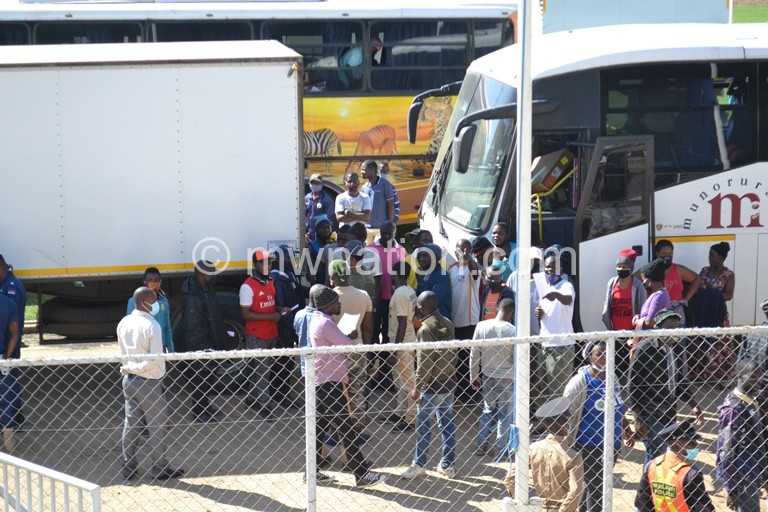Covid-19 to slow down Malawi’s economy
The African Development Bank (AfDB) has said the coronavirus (Covid-19) pandemic could slow gross domestic product (GDP) growth for Malawi in 2020 to at least 1.3 percent.
In its Economic Outlook Supplement released Tuesday, the AfDB projects that growth would recover in 2021 driven by agriculture, tourism and export receipts and a rebound in foreign direct investment.

The bank further states that the $213.2 million (about K154 billion) which Malawi planned to spend on containing effects of the pandemic is likely to widen the country’s fiscal deficit.
It reads: “In the short term, the subdued foreign exchange inflows could depreciate the local currency. The $213.2 million spending to contain the effects of the pandemic is likely to widen the fiscal deficit to 6.1 percent of GDP in the baseline scenario, which could further deteriorate to 6.6 percent of GDP in the worst-case scenario, should the pandemic persist until the end of 2020.
“And the public debt to GDP ratio could widen beyond the current 62 percent of GDP, and inflation could rise to 12.2 percent in 2020 driven by import supply disruptions. The would widen to 17.8 percent of GDP in 2020 from 16.7 percent in 2019, driven by lower than expected foreign exchange earnings from tobacco, Malawi’s main export.”current account deficit
By Tuesday, the number of Covid-19 cases in Malawi stood at 1 877, including 24 deaths, and 345 recoveries.
The AfDB has appreciate that immediate revenue shocks to businesses induced by the Covid-19 pandemic have exposed companies to liquidity challenges.
In response, it recognises that the Reserve Bank of Malawi eased the liquidity reserve requirement on commercial banks to free up an equivalent of $16.3 million for on lending to businesses, coupled with interest rate restructurings.
It advises: “Fiscal policy adjustments include tax waivers on personal protective equipment for health workers, soap, and hand sanitisers, waivers of the tourism levy, voluntary tax filings over six months, fuel price cuts by 15 percent, increased loan allocations to small and medium enterprises, and tax cuts on mobile money and electronic payment services by 40% for all transactions.
“A more sustainable post-Covid–19 recovery strategy should focus on creating conditions for private sector investment that allow the government to collect enough domestic revenues to finance infrastructure development and provide critical social services.”
The projections from AfDB come just six days after the International Monetary Fund (IMF) said Malawi’s n
person could narrow by 1.8 percent as Covid-19 pandemic threatens to slow the country’s growth.GDP per capita or income per
The IMF’s June Regional Economic Outlook for sub Saharan Africa, which puts Malawi GDP growth at one percent, said the standard of living will fall to about $392 (about (K290 672) this year from around $400 (K296 000).
In an interview earlier, Reserve Bank of Malawi (RBM) spokesperson Mbane Ngwira said the bank is assessing the Covid-19 impact on growth, with one percent growth put as the worst-case scenario.
He admitted that the GDP per capita would decline this year.
Said Ngwira: “The Covid-19 pandemic is a health issue and we take cue from health authorities. At the moment, we do not know how it is going to develop or end.
“However, in our worst- case scenario, we expect growth to be around one percent or even go into recession. This definitely will have a negative effect on the GDP per capita and livelihoods of Malawians.”
On his part, Chancellor College economics professor Ben Kalua said the agriculture sector remains the biggest single contributor to the country’s economic growth, but the Covid-19 pandemic threatens to disrupt agricultural value chains on top of other sectors.
Malawi declared a State of National Disaster on March 20 2020 before registering the first three case on April 2.





